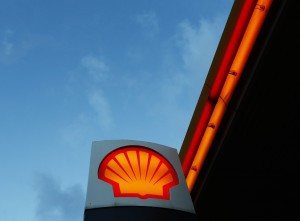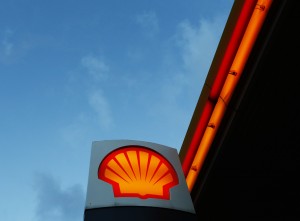
Reuters /LUKE MACGREGOR /LANDOV
Shell is reviewing its asset portfolio in Nigeria. In a statement, the company says that the government is taking active measures to support local companies engaged in oil production and refining.
At the same time, analysts note that foreign companies seek to get rid of the Nigerian assets, since there are frequent attacks on oil infrastructure, theft and sabotage of oil companies.
Nigeria is currently the largest oil producing country in Africa with a daily index of about 2 million barrels.
Shell previously said it turns down shale projects in South Africa due to lower oil prices, and the company is still trying to get a license on shale gas exploring in a semi-desert region Karoo, the head of Shell South Africa Bonang Mohale reported.
The strong decline in oil prices, started last June, threatens the implementation of expensive projects, said Mohale.
Shell’s leaving is a blow to the government of South Africa, which has been criticized by oil companies for the delay in the issuance of licenses for exploration. Shell expects to resolve the past six years. Tubing Nembe Creek, despite leakages, is still one of the country’s main oil arteries.
Block OML 29 includes fields Nembe, Santa Barbara and Okoroba.
The sale of assets is part of a strategic review of Shell Petroleum Development Company of Nigeria Limited (SPDC) asset portfolio on land of Nigeria and in accordance with the purpose of the Federal Government of Nigeria to engage companies in the Nigerian oil and gas industry - the report says.
In recent years, Shell has faced many challenges in Nigeria. Illegal pumping of raw materials from the pipeline system led to a substantial loss of oil and damage to pipelines. According to the British Royal Institute of International Affairs Chatham House, as a result of illegal pumping oil, Nigeria annually loses $ 3-8 billion.
Oil had been discovered in Nigeria in 1901. Industrial mining began in 1956.
Since 1971, Nigeria is a member of OPEC and was the eighth largest exporter of oil in the world in 2007. In 2008, oil production was about 2.17 million barrels a day. Nigeria's OPEC quota of 2.224 million barrels per day. Nigeria produces about 572 daily thousand barrels of oil, exports of which are about 67 thousand barrels.
Proved oil reserves, according to various sources, estimated from 25 billion to 36 billion barrels.
At the same time, analysts note that foreign companies seek to get rid of the Nigerian assets, since there are frequent attacks on oil infrastructure, theft and sabotage of oil companies.
Nigeria is currently the largest oil producing country in Africa with a daily index of about 2 million barrels.
Shell previously said it turns down shale projects in South Africa due to lower oil prices, and the company is still trying to get a license on shale gas exploring in a semi-desert region Karoo, the head of Shell South Africa Bonang Mohale reported.
The strong decline in oil prices, started last June, threatens the implementation of expensive projects, said Mohale.
Shell’s leaving is a blow to the government of South Africa, which has been criticized by oil companies for the delay in the issuance of licenses for exploration. Shell expects to resolve the past six years. Tubing Nembe Creek, despite leakages, is still one of the country’s main oil arteries.
Block OML 29 includes fields Nembe, Santa Barbara and Okoroba.
The sale of assets is part of a strategic review of Shell Petroleum Development Company of Nigeria Limited (SPDC) asset portfolio on land of Nigeria and in accordance with the purpose of the Federal Government of Nigeria to engage companies in the Nigerian oil and gas industry - the report says.
In recent years, Shell has faced many challenges in Nigeria. Illegal pumping of raw materials from the pipeline system led to a substantial loss of oil and damage to pipelines. According to the British Royal Institute of International Affairs Chatham House, as a result of illegal pumping oil, Nigeria annually loses $ 3-8 billion.
Oil had been discovered in Nigeria in 1901. Industrial mining began in 1956.
Since 1971, Nigeria is a member of OPEC and was the eighth largest exporter of oil in the world in 2007. In 2008, oil production was about 2.17 million barrels a day. Nigeria's OPEC quota of 2.224 million barrels per day. Nigeria produces about 572 daily thousand barrels of oil, exports of which are about 67 thousand barrels.
Proved oil reserves, according to various sources, estimated from 25 billion to 36 billion barrels.





